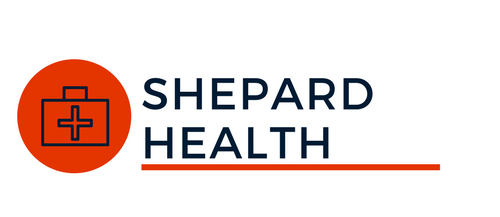Just Say No to Notes!! Empower Providers by Modernizing Data Entry in Behavioral Health
Historical investment in psychiatry and broader behavioral health has lagged other specialties like surgery. These specialties garnered higher reimbursement and had more value-based care incentives, so the investment has followed. There has been a growing recognition of the importance of mental health services, and many hospitals are investing more in psychiatric and behavioral health departments. Surgical notes use to be key for all surgery related data. But there was a shift, with the demand for surgery quality, and dollars linked to the quality, you now see the utilization of flowsheets and other data entry methods making surgical data some of the most analyzable data in healthcare.
Modernizing data entry in psychiatry, and broader behavioral health programs, can help providers improve patient care and outcomes, increase revenue, and optimize resource allocation. The consistent use of unstructured notes in behavioral health limits the ability to gain downstream value from the data providers enter. Enhanced analytics, made possible by modern data entry methods, provides detailed and accurate insights into patient behavior, treatment outcomes, resource utilization, and areas for opportunity.
Here are five benefits of modernizing data entry in psychiatry and behavioral health:
1. Accurate Reimbursement: Accurate data is essential for providing effective patient care and obtaining proper reimbursement. Relevant data points embedded in notes can be overlooked by coders, or data entry errors can lead to denied payments. Modern data entry methods offer smart checks to ensure that data points are entered in the correct format, thereby reducing errors and inaccuracies, and improving the quality of patient data.
2. Increased Efficiency: Modern data entry methods streamline data collection and management, freeing staff to focus on other areas of patient care. Voice transcribing software has been adapted to discreet data entry. Products like Dragon Medical© provides an excellent option to move through a provider’s data entry in a clean and easily accessible format.
3. Enhanced Analytics: Modern data entry methods generate high-quality and granular data that can be used for detailed and accurate insights through analytics. This information can help providers better understand patient needs, identify areas for improvement, and optimize resource allocation. Analytics was optional in behavioral health, but the shifting landscape grant governing bodies, payors, and regulators are expecting data and supporting analytics.
4. Improved Patient Engagement: Modern data entry methods, such as mobile apps and patient portals, provide patients with more control over their own health data. This increases patient engagement, leads to improved patient satisfaction and loyalty; increased revenue; and improved patient retention.
5. Cost Savings: Modernizing data entry can help to reduce costs associated with data management, such as paper and storage costs. It can also reduce the risk of errors and inaccuracies that can lead to additional costs related to rework and compliance. Savings can also be achieved through reduced chart review and data abstraction. Providers spend considerable time on doing monthly, quarterly, and annual reporting. By engaging providers in data entry methods using discreet data, much of the costly abstraction and review can be eliminated through automated reporting.
In behavioral health, enhanced analytics provides specific benefits such as predictive analytics, treatment outcome analysis, population health management, data-driven decision making, revenue cycle management, and quality improvement. By using these insights to inform decision-making, providers can improve patient care, leading to better outcomes, lower costs, and increased revenue.
In summary, modernizing data entry in psychiatry and behavioral health provides enhanced analytics, leading to improved accuracy and efficiency in data management, cost savings, improved patient engagement, and increased revenue through improved patient care and better use of resources. Healthcare providers should begin rapid investment in modern data entry methods for behavioral health providers to succeed in an increasingly data-driven healthcare landscape.
#healthcare #psychiatry #behavioralhealth #dataentry #analytics #efficiency #patientengagement #costsavings #improvedaccuracy #revenue #behavioralhealth #medicine #data #health #addictiontreatment #sobriety #sobrietyrocks #sud #oud #opioidusedisorder #opioids #addictionrecovery #addictionmedicine #alcoholusedisorder #machinelearning #predictiveanalytics #revenuecyclemanagement #revenuecycle #revenuemanagement #cost #sustainable #ehr

